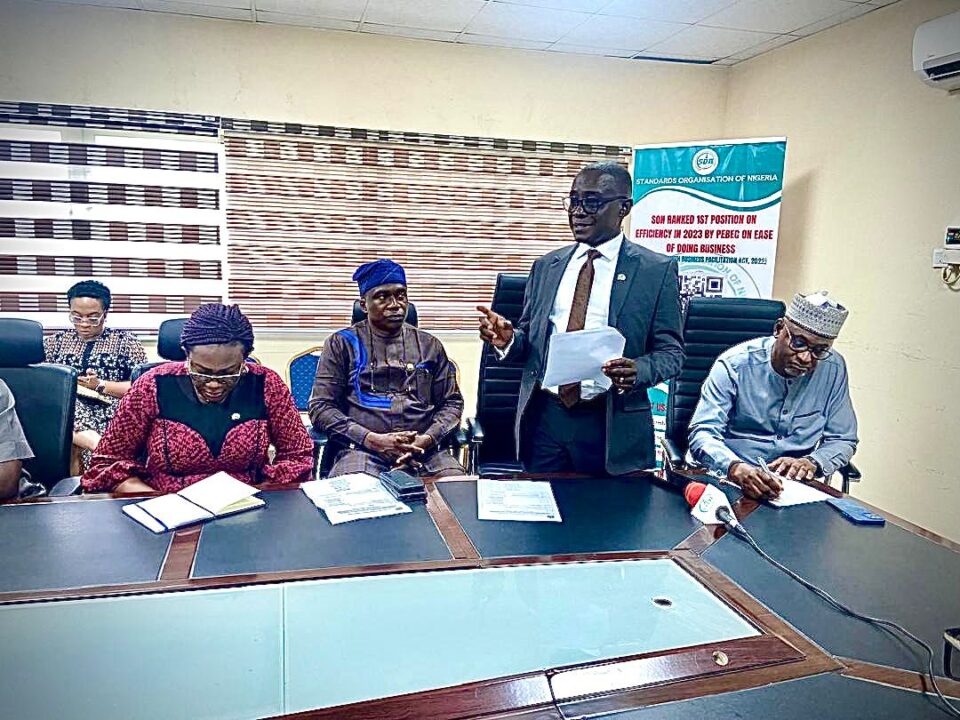By Felix Khanoba
The Standards Organisation of Nigeria (SON) has convened a significant meeting with operators of the Special Economic Zones (SEZs) to address key issues regarding the implementation of the Special Economic Zones Conformity Assessment Programme (SEZCAP).
SEZCAP aims to enhance the production, importation, sales, and distribution of high-quality, safe products manufactured locally in Nigeria and those imported into the country.
Speaking at the meeting in Abuja, SON Director-General, Dr. Ifeanyi Okeke, represented by Engr. Onucheyo Enebi, emphasided the organisation’s commitment to ensuring that products destined for Nigerian markets comply with the Nigerian Industrial Standards (NIS) or other relevant regulatory frameworks for export products.
Dr. Okeke highlighted the extension of SON’s standardization activities to the SEZs in Kano, Calabar, and Lagos, to further boost the quality of goods produced and traded in these zones.
The SON boss praised the cooperation of key stakeholders, including Nigeria Export Processing Zones Authority (NEPZA’s) Managing Director, Dr. Olufemi Ogunyemi and Nigeria Customs Service Comptroller General Mr. Bashir Adewale Adeniyi.
He reiterated SON’s dedication to ensuring that Nigerian markets are supplied with certified, safe products, in line with its mandate.
On his part, the NEPZA’s Managing Director, represented by Mrs. Dayo Dada, lauded SON’s efforts in fostering inter-agency cooperation and swiftly addressing the issue of substandard goods.
He encouraged operators to voice their concerns about the SEZCAP certification program to ensure its effective implementation.
Engr. Akinware Ayodele, Head of the Mandatory Conformity Assessment Programme (MANCAP), underscored SEZCAP’s vital role in elevating operational standards within SEZs.
He explained the rigorous certification processes that ensure businesses in SEZs meet high-quality benchmarks, thereby enhancing investor confidence, fostering a competitive business environment, and driving economic growth.
The SEZCAP scheme, he noted, is essential for maintaining the integrity and sustainability of SEZs, aligning them with global best practices, and contributing to Nigeria’s broader economic strategy.



